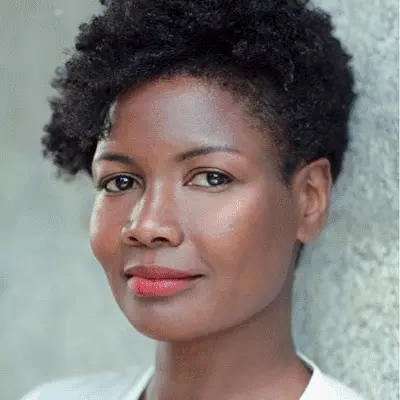TV's "Black Lady Therapists" are starting to have more depth, from Ted Lasso to In Treatment to The White Lotus
-

In 2018, Aisha Harris wrote in Slate that, in terms of TV tropes, the "Black Lady Therapist" was the new "Black Best Friend." At the time, Harris said it "does seem a bit peculiar" that shows with white characters like Broad City, Crazy Ex-Girlfriend and Grace and Frankie all have black female therapists. In a new piece for NPR, Harris says that the "Black Lady Therapist" trope has evolved. "Since I wrote that piece, Hollywood hasn't slowed its stream of Black Lady Therapists, including Ms. Burble (Gina Torres) on Riverdale; Dr. Eleanor Berger (Vanessa Williams) on Season 10 of American Horror Stories; and Gayle Graham (Eisa Davis) on Mare of Easttown," says Harris. "(Another recent example, though the patient is South Asian: Never Have I Ever's Dr. Jamie Ryan, played by Niecy Nash.) But not all tropes are hackneyed and frustrating all the time, and the last several months have introduced a handful of Black Lady Therapists that subverted, or at least challenged, the trope more than their predecessors: ... (Dr. Sharon Fieldstone) in Ted Lasso, Dr. Brooke Taylor in Season 4 of In Treatment and Belinda (Natasha Rothwell) on The White Lotus. Here is where I'll note that Belinda is *technically* a resort spa manager who practices craniosacral therapy, which is widely considered pseudoscience by health and science experts. But her function within White Lotus is consistent with the B.L.T. trope." Harris adds: "On In Treatment, Brooke is even more of an onscreen rarity than Belinda: A Black Lady Therapist at the center of the story (well, mostly). Uzo Aduba has quite a bit of material to work with here, and she breathes so much life, pathos, and feeling into Brooke. Most episodes are structured around Brooke's session with one of three patients (two are people of color – also a rarity); others show the tables turned, with Brooke getting regular visits from her sponsor Rosa, who's there to help her work through recovery and confront a lifetime's worth of regrets and pain...And then there's Sharon, a character whose initial appearance elicited from me a huge eyeroll and resigned sigh. Here's a woman who shows up just as so many Black Lady Therapists do, dropped into an already-established cast and positioned as the outsider you don't expect to stick around for very long. There's a version of Sharon that bears out my fears – in which she's little more than a scold, a killjoy sent to throw some acidity on the show that's been both celebrated and dismissed for being so sunny and sweet. But Sharon's arrival in Season 2 works twofold. Practically, she does help the show take a turn toward more complex themes, unveiling Ted's layer of artifice as a happy-go-lucky dude. But that process also fully involves her as a human being who's bringing in her own baggage – her struggles to get Ted to be more honest about what he feels are tied to her own reluctance to express vulnerability with him in return. As her own therapist advises her, she must meet Ted halfway. When Ted finally opens up about his father's suicide, the revelation feels earned, because Sharon and Ted have each seen one another at their low points (Sharon's calls for help after her bike accident help fortify their bond)...Belinda, Brooke, and Sharon suggest a trope that's officially reached its self-aware period, and some writers and casting directors seem to be playing deliberately with the Black-woman-as-caregiver stereotype."
TOPICS: Sarah Niles, In Treatment, Ted Lasso, The White Lotus, Natasha Rothwell, Uzo Aduba, African Americans and TV
More Sarah Niles on Primetimer:
